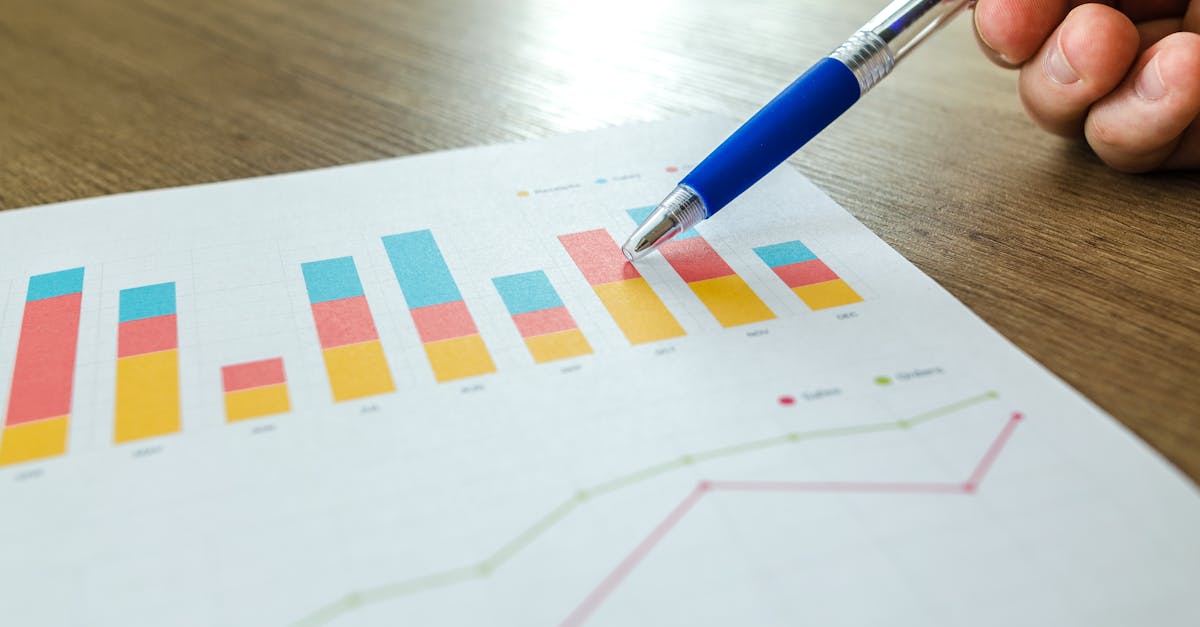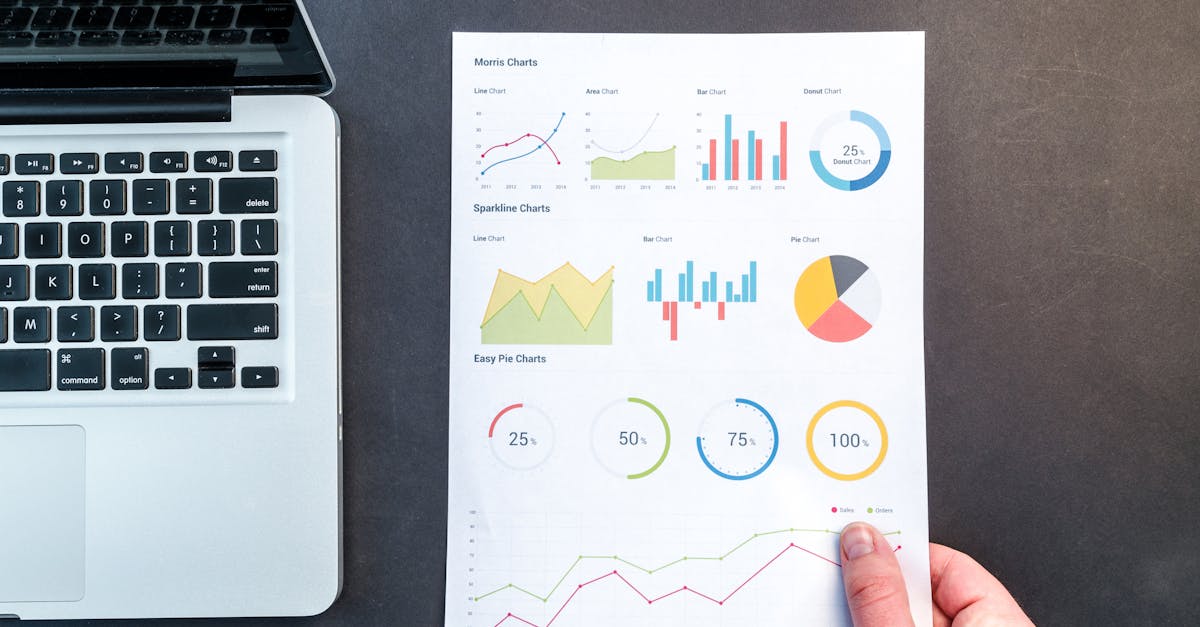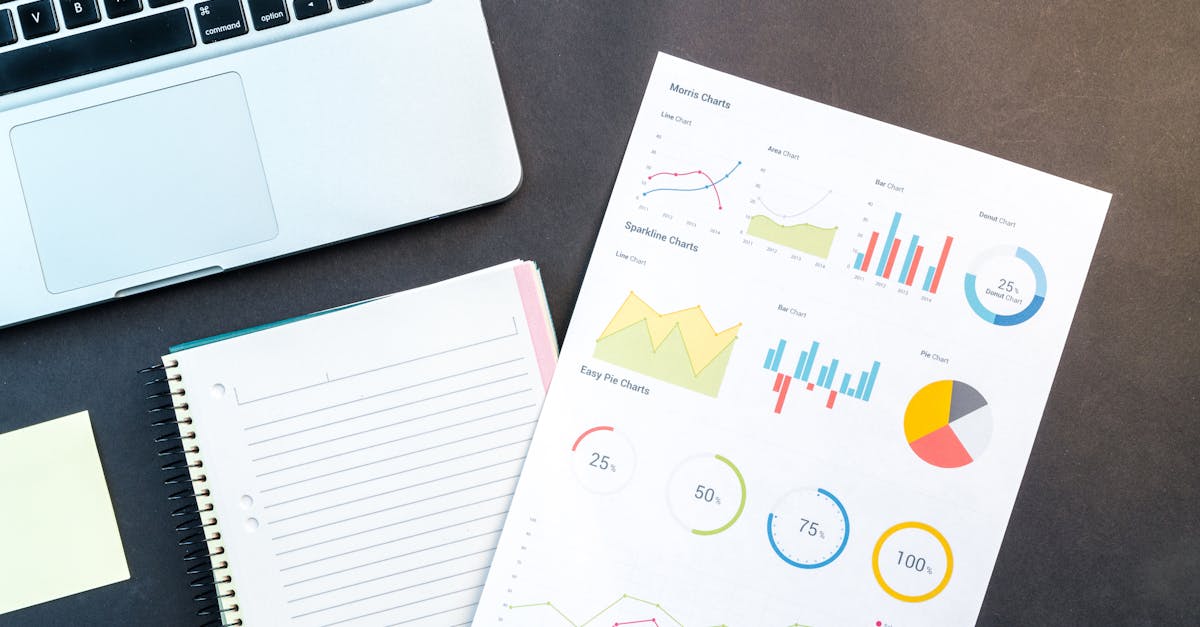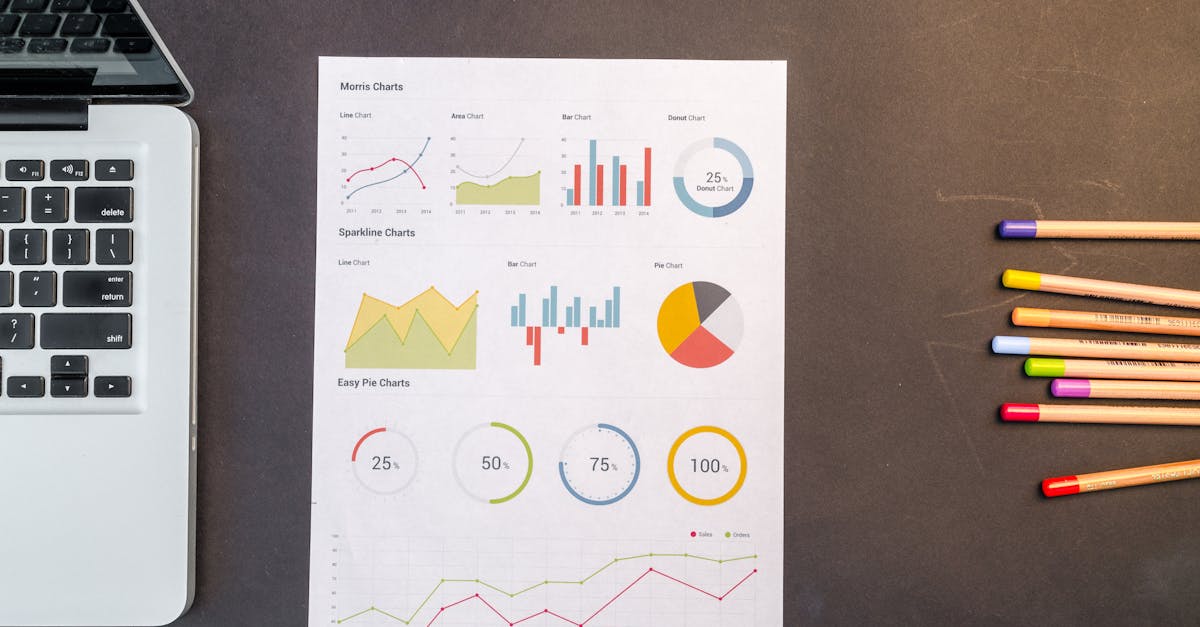
Table Of Contents
Tools for Analytics
In today’s data-driven landscape, a variety of tools are available for analytics and reporting, catering to different needs and industries. These tools range from basic spreadsheet software to advanced data visualisation platforms and business intelligence suites. Each option offers unique features that support data collection, processing, and analysis, enabling users to uncover valuable insights. Popular analytics tools include Tableau, Power BI, and Google Analytics, each facilitating user-friendly interactions with complex datasets, making it easier for both technical and non-technical users to engage with data.
Selecting the right analytical tools is essential for effective decision-making and operational success. Factors to consider include the size of the data, the complexity of analysis required, and the specific business objectives. A good tool should integrate seamlessly with existing systems while allowing for scalability as the organisation grows. By focusing on the right analytics and reporting tools, businesses can transform raw data into meaningful insights, ultimately leading to informed strategies and improved outcomes.
Choosing the Right Analytical Tools
Selecting the right analytical tools is a critical step in harnessing the full potential of data for your business. There are various factors to consider, such as the complexity of the data, the specific needs of your team, and the level of expertise available. Many businesses benefit from tools that integrate seamlessly with existing systems. This ensures that Analytics and Reporting processes are streamlined, allowing for quicker decision-making and fostering a culture of data-driven insights.
It’s also essential to evaluate the scalability and flexibility of the tools. As businesses grow, their analytical requirements may change. Opting for platforms that offer advanced features, such as predictive analytics and custom reporting options, can provide lasting value. Ensuring that your chosen tools align with your strategic objectives will maximise both the effectiveness and accuracy of your Analytics and Reporting efforts, ultimately supporting broader business goals.
Benefits of Effective Reporting
Effective reporting is essential for translating complex data into actionable insights. It allows organisations to consolidate information from various sources, presenting a clearer picture of performance metrics and trends. With the right reporting frameworks in place, stakeholders can easily identify areas of improvement and make informed decisions that align with organisational goals. Analytics and Reporting work hand in hand, providing a robust mechanism to evaluate past performance and guide future strategies.
The benefits of effective reporting go beyond just data presentation. It fosters transparency and accountability within teams, as everyone has access to the same information. This consistency creates a collaborative environment where team members can engage in data-driven discussions. Moreover, streamlined reporting processes can save time and reduce errors, enabling resources to be focused on analysis and strategic initiatives. By leveraging Analytics and Reporting, businesses can enhance their responsiveness to market changes and improve overall performance.
Enhancing Operational Efficiency
In a world where data drives decisions, the role of analytics and reporting is critical for enhancing operational efficiency. By leveraging data insights, organisations can streamline their processes, identify bottlenecks, and allocate resources more effectively. This informed approach enables teams to focus on areas that need immediate attention, resulting in smoother operations and reduced overhead costs.
Furthermore, analytics and reporting systems provide real-time visibility into key performance indicators. This transparency allows stakeholders to monitor performance metrics constantly and make data-driven adjustments. With access to accurate information, teams can enhance their responsiveness to market changes and operational challenges, ultimately leading to improved productivity and better utilisation of resources.
Benefits of Advanced Analytics
Advanced analytics plays a pivotal role in uncovering valuable insights from data. Organisations can delve deeper into trends and patterns that traditional reporting might overlook. By employing techniques such as predictive modelling and machine learning, businesses can anticipate future scenarios with greater accuracy. This level of insight allows for more informed decision-making, enabling companies to adapt strategies based on data-driven forecasts.
Utilising analytics and reporting enhances an organisation's ability to understand customer behaviour and market dynamics. With these insights, companies can tailor their offerings and marketing efforts to align closely with evolving consumer needs. This agility not only boosts customer engagement but also fosters innovation and competitive advantage. Advanced analytics transforms raw data into strategic assets, driving sustained growth and operational excellence.
Driving Strategic Growth
Advanced analytics combined with effective reporting significantly contributes to strategic growth within organisations. By analysing historical data and current trends, businesses can identify opportunities in their market. This capability allows companies to fine-tune their offerings, target specific customer segments, and adapt to changing consumer preferences. Consequently, organisations can implement data-driven decisions that align with their long-term objectives.
Moreover, Analytics and Reporting enable leaders to forecast future performance accurately. By leveraging predictive analytics, organisations can assess potential risks and rewards associated with various strategies. This insight ensures the alignment of resources and efforts with initiatives that promise the best returns. The continuous cycle of monitoring and evaluating results helps businesses refine their strategies and maintain competitive advantages in dynamic markets.
FAQS
What is the primary purpose of reporting in analytics?
The primary purpose of reporting in analytics is to present data in a clear and concise manner, allowing organisations to monitor performance, identify trends, and make informed decisions based on factual information.
How do I choose the right analytical tools for my organisation?
To choose the right analytical tools, consider factors such as the specific needs of your organisation, the type of data you work with, scalability, user-friendliness, integration capabilities with existing systems, and budget constraints.
What are some key benefits of effective reporting?
Effective reporting enhances transparency, improves decision-making, facilitates performance tracking, and can lead to better resource allocation, ultimately contributing to overall operational efficiency.
How can advanced analytics drive strategic growth?
Advanced analytics can drive strategic growth by uncovering hidden insights within data, predicting future trends, and enabling organisations to make proactive decisions that align with their long-term goals.
What tools are commonly used for analytics?
Commonly used tools for analytics include business intelligence software, data visualisation platforms, statistical analysis tools, and machine learning frameworks, each catering to different aspects of data analysis and reporting.

















































